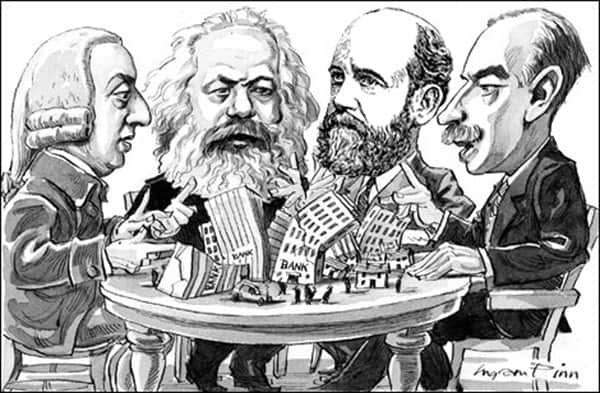What is IPE?
Trending
Conceptualization of “political economy” throughout the history
by Arash Sharghi

In literature of both economics and politics, the term “political economy” was for the first time introduced by Aristotle, who used the term to refer to the tax imposed to countervail public expenditures. The term “political economy” derives from two words of Latin origin “polis” and “oikonomike”, where “polis” stands for “independent city” (site) and with the merge of words polis and oikonomike into a “political economy” it comes to mean the administration/management of a country, government or nation.
The “political economy” as a concept was introduced and accepted by arithmeticians into the economics science and was widely used by Mercantilists in the second half of the in the 17th century. According to Mercantilists, economy is the “art of managing/manipulating an individual” and “political economy” is, thus, “an art to manage the government/country”. On the other hand, classical economy thinkers have been using the term “political economy” for long: Smith and Malthus have defined it as “inquire of quality and source of wealth”, whereas Ricardo has defined the concept as “a inquire of which classes are involved into the production process and how the outcomes/products are divided”. The term became popular and used among Marxist economists after Marx’ book “A Contribution to the Critique of Political Economy” in 1859, and by liberal economist after Marshall’s book “The Principles of Economy” in 1890. For this reason, since the term political economy was associated with the Marxist approach, liberal economists have tried not to use the term. As for Keynes, political economy should be defined in three different ways: firstly, political economy is a positive science related to what have happened and finished. Secondly, political economy is a normative science, related to what has to be done. Lastly, political economy is an art- a system of regulations and rules to be used to reach certain objectives/aims. Due to the fact that the boundaries of the political economy are hardly to be determined, Keynes does not see the field as a part of economy science.
However, there were two major development happened in the last 30 years: first one, the term political economy has transformed into political economics science and second one, the widespread of the idea that politics and economy can not be drawn apart.
There are three basic economic decision-making agencies in both economics theory and real life: company, consumer and state. Company and consumers are operating with and use only individual preferences, whereas state in order to materialized social choices has to undertake both political and economic governance equally. With regards to this matter, it is important to look upon the reasons of state’s interference/intervention into the economy.
Summarizing, the political economy is defined as a concept that draws together the rules of political and economics sciences in order to define, explain and regulate the role of state in economy.



